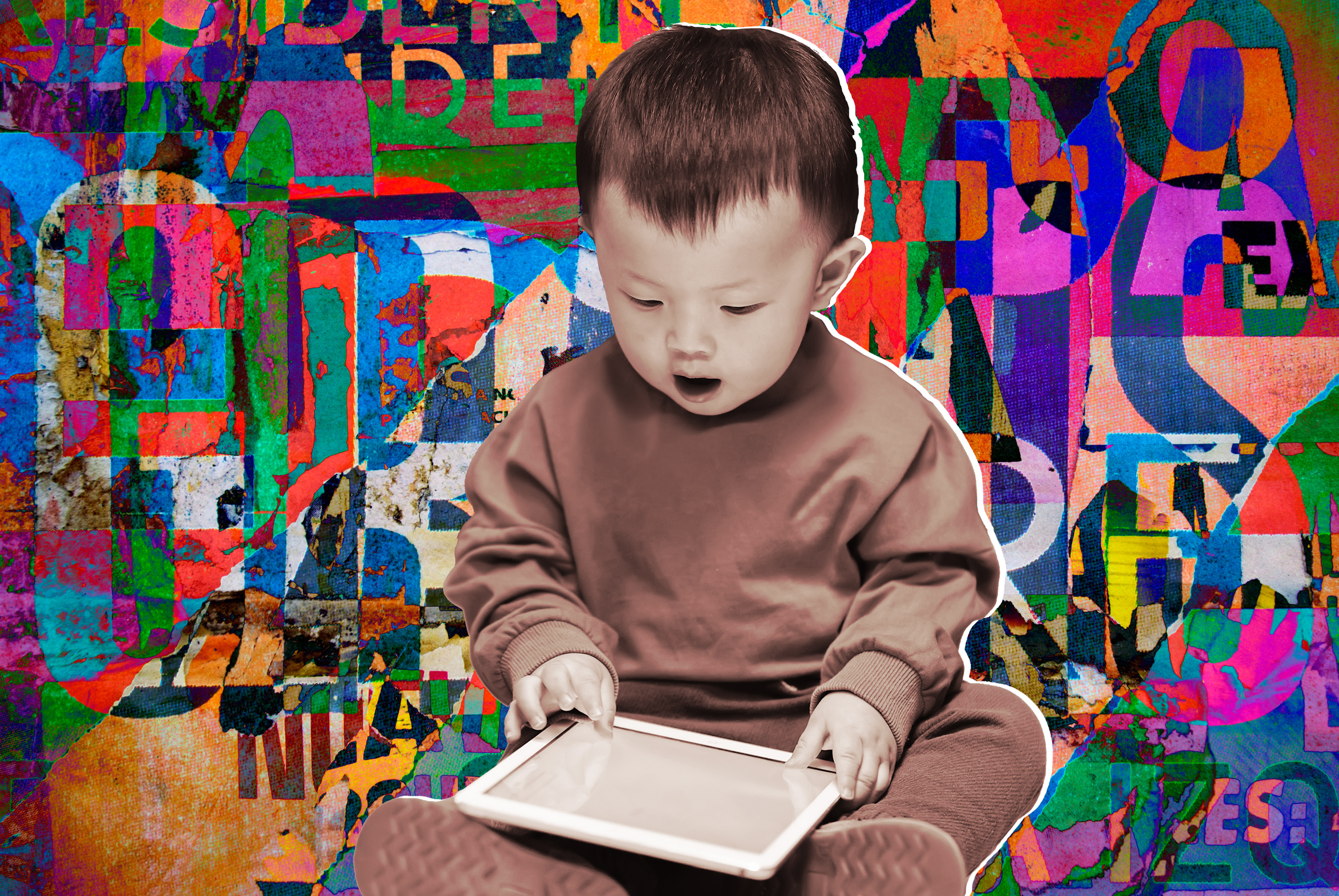
As overwhelmed and sleep-deprived parents know, giving your baby an iPad is an easy way to secure 10 minutes of quiet time. But a 2015 study in the journal JAMA Pediatrics found that infants who play with tech toys featuring flashing lights and computerized talking and music—instead of traditional wooden playthings—tend to have a decreased quality and quantity of language. Are these claims true? We spoke with two behavioral pediatricians to find out.
The Benefits of Play
For babies and toddlers, the benefits of play are widespread. “Play presents an opportunity to develop cognitive skills, social skills, abstract thinking, motor skills, and much more. It helps your child move forward,” says Heidi Feldman, M.D., PhD, the division chief of developmental-behavioral pediatrics at the Stanford University School of Medicine. And when it comes to your child’s development, she says certain toys are better than others—specifically traditional, simple toys that allow Baby to exercise her creativity.
“Imaginative play helps babies with new ideas,” says Laura Phillips, PsyD, ABPdN, a clinical neuropsychologist at the Child Mind Institute. She mentions one of the best types of toys for brain development: wooden blocks. Not only do blocks improve fine motor skills, they also encourage your child to problem solve and use her imagination. Other noteworthy toy options include stacking cups, coloring books, and spoons. “There's something to be said in toys that are simple and let the child put meaning into them,” explains Dr. Feldman. “There's no reason you can't take wooden spoons from your kitchen and give them to your child for play.”
Tech Toys: Are They Good or Bad?
For the study in JAMA Pediatrics, researchers looked at parents and their babies (aged 10 and 16 months) playing at home. They noticed less verbal interaction between parents and children when an electronic toy was involved. Babies who played with books and more traditional items, like wooden blocks, tended to exhibit more back-and-forth "chatter" with mommy or daddy.
Dr. Phillips backs this up: “Emerging research suggests that language develops optimally in an interpersonal context,” she says. “There are studies showing that children acquire more vocabulary terms when talking with parents than listening to ebooks or TV shows.” Little kids seem to learn best from human interaction—not interaction with iPads, video games, and other flashy technology objects.
In addition, tech toys don’t have the same developmental benefits as traditional old-school playthings. “It takes a lot more effort and fine motor control to drag a crayon across a coloring page than drag a finger across a tablet,” says Dr. Philips. Technology-based toys also limit creativity, since they don’t inspire kids to use their imaginations. Watching a video won’t teach them, for example, how to problem solve, accept failure, and understand cause-effect relationships in the same way building blocks can. Another downside of tech toys: children might get so accustomed to the stimuli that they’ll find simpler toys less appealing, which could lead to attention span issues down the road.
In spite of all of this information, parents don’t need to prevent their children from using tech toys. Instead, they should vary the types of toys their children play with. “Tech toys aren't dangerous to an infant’s cognitive development, but they might replace activities that are helpful,” summarizes Dr. Phillips. “Children will be drawn to stimulating flashy toys, but there needs to be variety, and kids should be exposed to simpler toys also.” So go ahead and let your child spend a few minutes on the iPad—then follow up with some quality parent-child bonding time with books and wooden blocks.
